Second Grade at Houston Private School
The Next Step in Your Child’s Academic and Personal Growth
At our private school in Houston, second graders will review the skills that they learned in first grade and build on them. Your child will receive all of the individualized attention they need to progress through our academic curriculum and continue their personal and social development. When you enroll your child in the second grade program at The Apple Tree School, you can expect them to finish the year with new skills and a more robust understanding of writing, spelling, grammar, vocabulary, mathematics, and more. On top of that, our dedicated teachers will ensure that your child continues to develop wholesome, Christian values and useful social skills that will help them be happy and successful. Get in touch with us to register today!
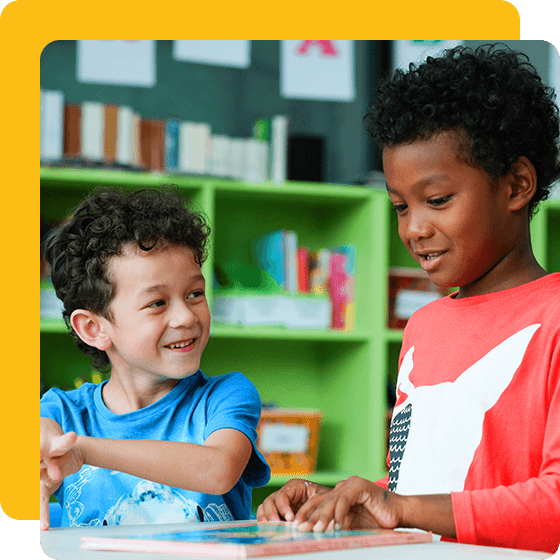
In Our Second Grade Program, Your Child Will Learn:
- Mathematics – multiplication and division, sums and differences, and more
- Reading skills – continue to sound out words and accurately read two syllable words
- Reading comprehension – recall details and discuss similarities between different stories
- Writing – understand beginning, middle, and end, and write stories, letters, and more
- Spelling – spelling rules, how to use the dictionary, and correctly spell words
- Vocabulary – new words, common contractions, and synonyms and antonyms
- Grammar – subjects and predicates, singular and plural nouns, present and past tense
- Values and morals – fairness, respect, integrity, honesty, spirituality
- Personal development – sense of self, biblical teachings, social skills, and more
Second Grade
READING & COMPREHENSION
Our alternative school’s program for second graders is top notch. Students will review what was learned in first grade and continue learning how to read. They will do more explicit phonics work, practicing new letter-sound patterns and decoding. Turning letter sounds into speech should become almost automatic, allowing students to focus on the meaning and flow of sentences. The overall goal is to be able to read (aloud & silently) second grade texts such as Peggy Parish’s Ameila Bedelia books, Lillian Hoban’s Arthur books and volumes from non-fiction series such as I Can Read and Let’s Read and Find Out.
- Continue to sound out words
- Accurately read single-syllable and most two-syllable words
- Recall incidents, characters, facts and details of a text
- Answer what, how, why, and what if questions
- Discuss similarities of characters and events in different stories
- Retell stories and share information in your own words
WRITING
- Write brief stories, poems, letters, descriptions, and reports
- With help, write compositions with a beginning, middle & end
- Practicing using paragraphs
- With help, revise work for clarity and edit for spelling & mechanics
- Practice writing neatly
SPELLING AND VOCABULARY
- Correctly spell words
- Learn and review spelling rules (such as the f sound is sometimes ph, as in phone)
- Continue using the dictionary to check spelling & word meanings
- Learn some common contractions
- Provide synonyms antonyms to given words
GRAMMAR AND USAGE
- Identify subjects and predicates in simple sentences
- Learn what nouns are and how to make singular nouns plural
- Study correct usage of verbs; how to change from present to past tense
- Learn what adjectives are; use them to compare by adding er and est
LITERATURE
- Read and listen to poems such as Christina Rossetti’s “Hurt No Living Thing”, Nancy Byrd Turner’s “Lincoln”, and Clement C. Moore’s “The Night Before Christmas”
- Read and listen to stories such as “The Beauty and the Beast”, “The Emperor’s New Clothes” and the African tale “Talk”
- Read nonfiction prose (for example, accounts of real life heroes)
- Read Greek myths such as “How Prometheus Brought Fire” and “Oedipus and the Sphinx”
- Read American tall tales like Paul Bunyan, Pecos Bill & Casey Jones
- Learn more basic literary terms (like myth, limerick)
- Tell and write their own stories
MATHEMATICS
We take particular pride in our alternative school’s mathematics program. Mathematics knows no physical bounds. It allows us to push forever outward in our explorations, taking the measure of bodies and events far removed from our immediate grasp.
Mathematics develops several critical habits of mind. It is unsurpassed in it’s demands for clarity in thought, developing logic, critical thinking and abstract thinking skills. Deductive reasoning—reasoning in which the conclusions follows the premise without variation—was developed by classical Greeks through application of mathematic thought upon systems of reasoning. In this, it remains an essential method for determining whether an idea is valid.
PROGRESS IN MATHEMATICS:
- Place value to 1000
- Counting in units of hundreds, tens, and ones
- Comparing and ordering numbers to 1000
- Composing and decomposing numbers to 1000
- Fluency with addition and subtraction facts
- Properties of addition
- Addition and subtraction of multi-digit numbers
- Estimating sums and differences
- Skip-counting and counting on by 10’s, 100’s , 25’s
- Rounding to 100’s
- Measure length with standard units
- Counting money
- Introduction to multiplication and division
If you have any more questions regarding our program or alternative school, please contact us. We will get back to you as soon as possible.
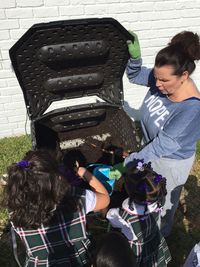
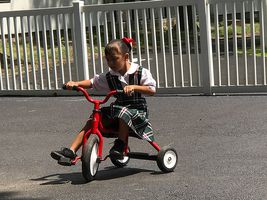
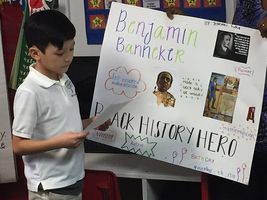
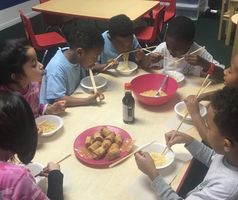
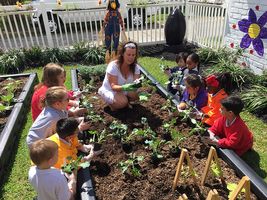
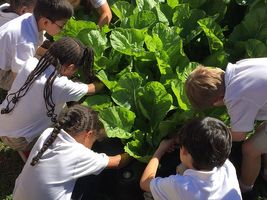
Get To Know Us
